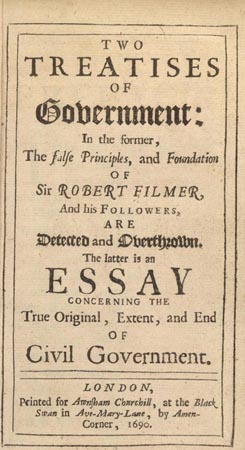

—Treatises of Government
—attacked the divine right
of kings and authoritarian
government. He promoted
a constitutional monarchy
that derived its power from
the law and from the consent of
the people.
—Rights
—individuals had natural
rights, which he referred to as
“all the rights and privileges of
the law of Nature.”
